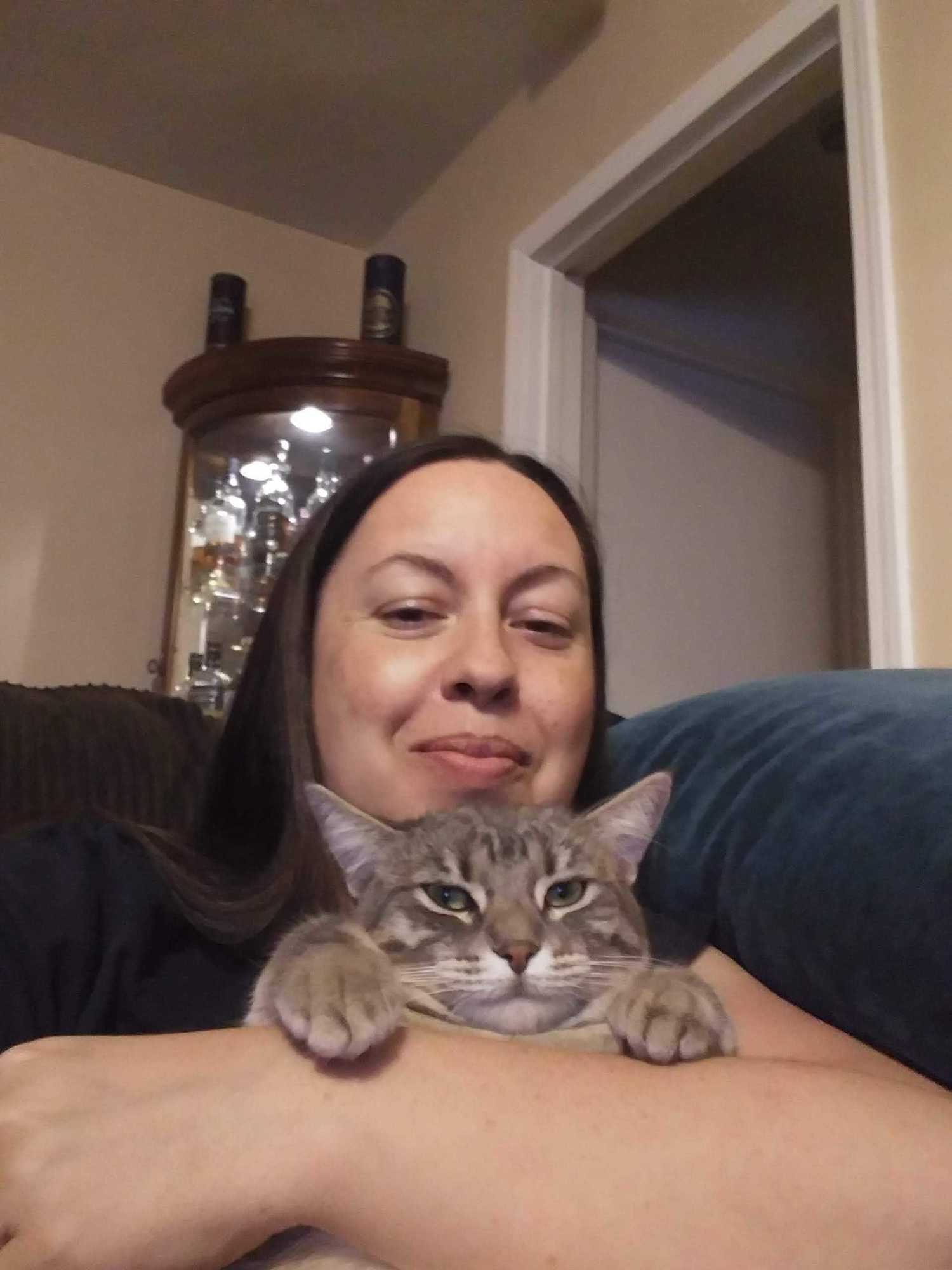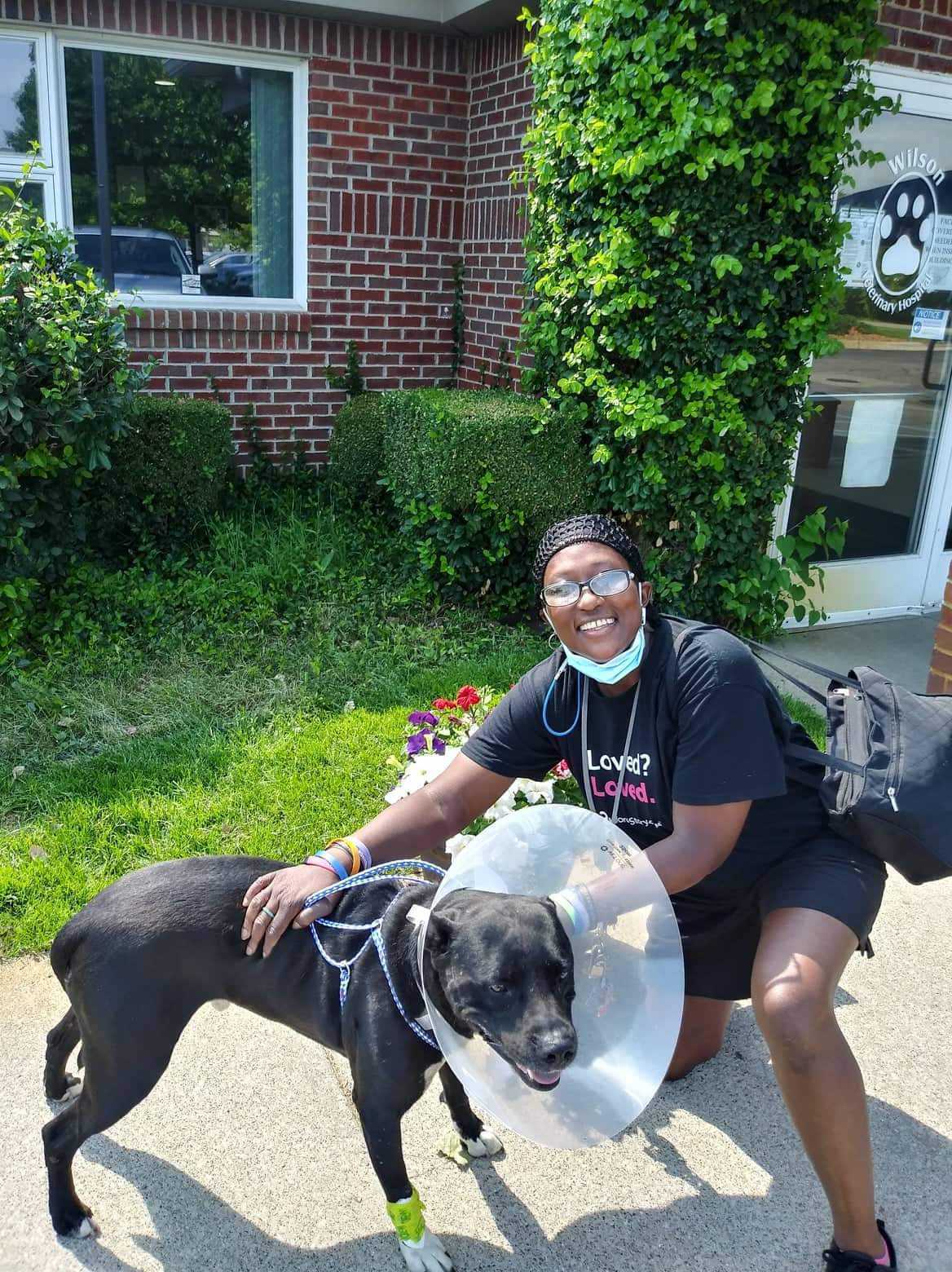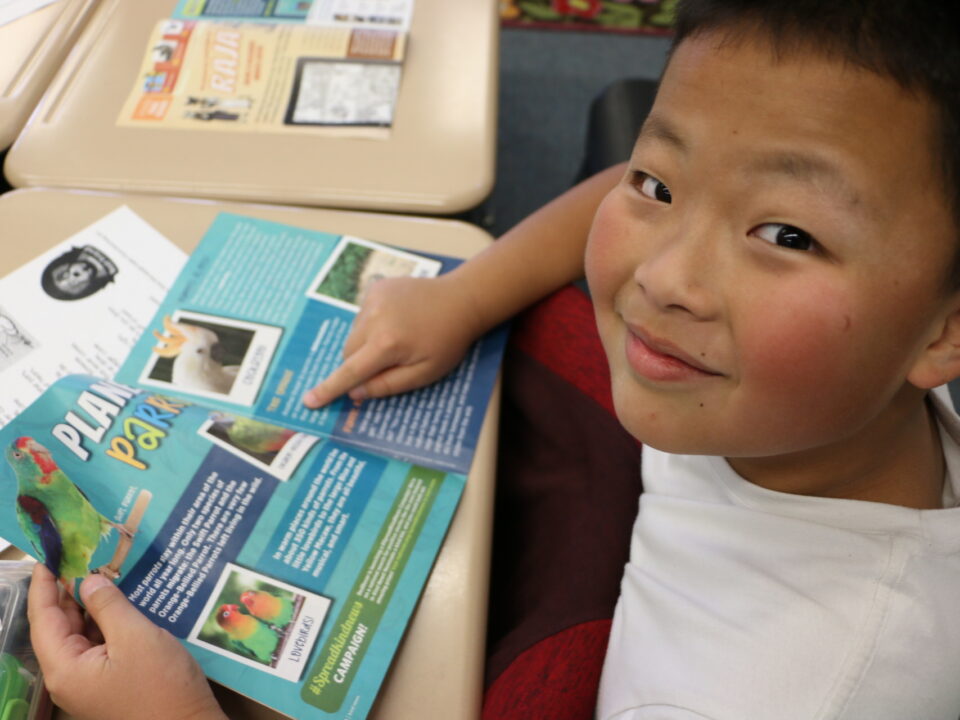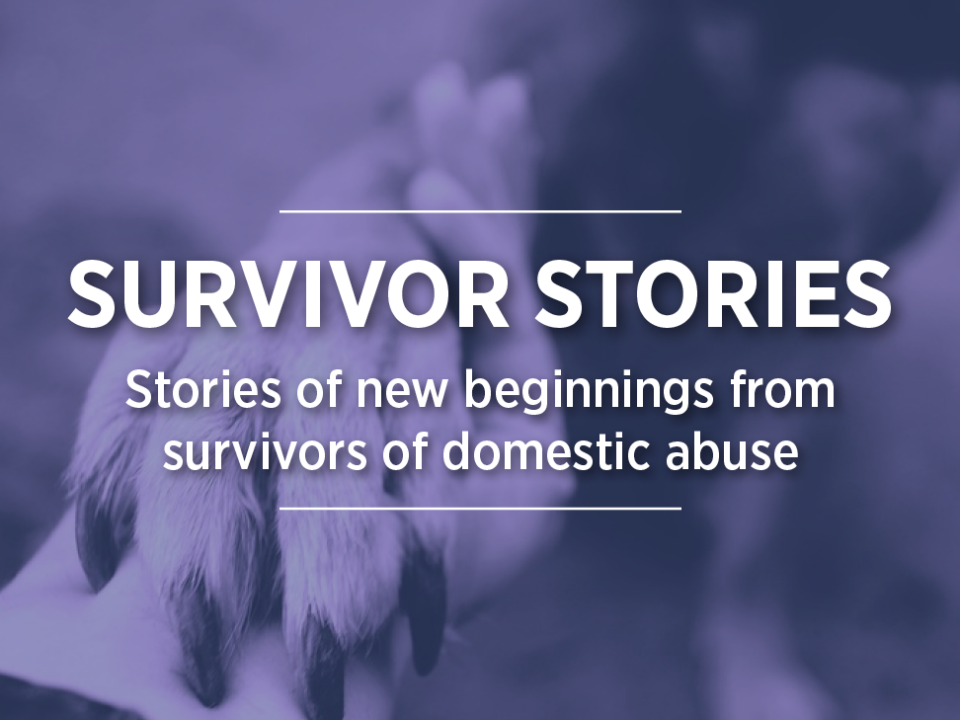Leading with Empathy: Behind the Scenes with Laurel
June 10th, 2022
By Helia Zarkhosh, RedRover Communications and Marketing Coordinator
What does a typical day look like for RedRover staff members? How do we answer the call for help when people have nowhere else to turn? In this series, “Leading with Empathy: Behind the Scenes at RedRover,” we share staff stories about our efforts to bring animals from crisis to care.

In this feature, Program and Facilities Manager Laurel Meleski reflects on how three conversations that unfolded over a single day illustrate the sometimes surprising impacts of her job in action.
The RedRover Relief program is managed by a small but mighty team of case managers who manually process every single application for financial assistance that we receive. Nothing is filtered by an automated system, and a real, live person reviews every last detail. By a conservative estimate, each case manager processes at least 1,000 applications a year. Laurel, who has been with RedRover for a decade and half, has likely processed over 13,000 herself. She’s spoken to thousands of frantic, distraught people worried about their pets; hundreds of survivors seeking an escape from domestic abuse; and Laurel is continually amazed by how moving these interactions can be.
During a recent workday, she had three noteworthy interactions with individuals who had been helped or needed help from each of our RedRover Relief grants: Safe Escape, Emergency Boarding, and Urgent Care.
Helping a survivor find safety
The first call came from a woman fleeing domestic violence (DV). As is often the case with DV-related calls, it’s the survivor themselves contacting us rather than an advocate from a domestic violence shelter. It’s also common that the assistance they’re seeking in that moment is not something that falls under our grant. But we still find ways to support people in need.
Laurel explains, “RedRover case managers are encouraged to help as often as possible and spend whatever time is needed to provide assistance, even if a situation doesn’t qualify for grant funding or is outside the general program guidelines for the grant – because helping in any way is within our guidelines.”
This caller was local to the Sacramento area and was hoping RedRover could watch her dog until she made it safely to a shelter, which is a common misconception about our services. Laurel clarified that we are not a boarding facility or animal shelter, but gave the caller the time to explain her situation and then provided more information about our program so that once the caller was in a shelter, her advocate could apply for a Safe Escape grant on her behalf.
“This person was looking for a DV shelter to go to and wasn’t having luck because everywhere she contacted was full and didn’t take pets. I was able to find a few DV shelters that we have worked with and that I know have the resources she needs, and provided this person with all the contact info she needed.
“Almost always, the folks reaching out to us in these types of situations only have access to a phone, and it’s difficult to go online with just a phone and try to find resources. So I’ll find the resources, drop everything into an email while we’re talking, and send it off as soon as we hang up so they can just tap the links and go.
“This was just a wonderful interaction because she was genuinely appreciative of the help, which she hadn’t received elsewhere. I like when you can connect on a personal level and help them be treated like a person when they haven’t been thus far.”
Although Laurel didn’t receive an update on this caller’s situation after they hung up, she tries to not let it weigh on her: “That is the reality 99% of the time for folks in DV situations who reach out to us directly. I almost never hear from them again. I actively try not to let it weigh on me by acknowledging that I’ve done everything I reasonably can to keep this person as safe as possible and give them as many resources as possible. I overwhelm them with information sometimes, which is why I always try to get an email address and write out everything I’m sharing with them on the phone – where they can go, how they can get there; I’ll look up bus routes if they need it, anything that they need to find their safe place – and then send it to them. If I’ve done my part, I’m good.”
A message of gratitude, one year later
 The next call came from an Urgent Care grant recipient. A year after receiving a grant for her dog Midnight’s veterinary care, she wanted to let Laurel know that both she and Midnight were well, and reiterate her gratitude for the help. Even more touching, she shared that she would be donating what she could to our organization.
The next call came from an Urgent Care grant recipient. A year after receiving a grant for her dog Midnight’s veterinary care, she wanted to let Laurel know that both she and Midnight were well, and reiterate her gratitude for the help. Even more touching, she shared that she would be donating what she could to our organization.
“It’s always so gratifying to get an update on an animal we were able to help. A couple of years ago, my dog Bob got sick and I felt so helpless; even with my extensive knowledge of veterinary medicine from being in this field, I was overwhelmed with my concern for my dog and found it difficult to process what was happening. I recognize that the people reaching out to us are in a similar state of worry over their pet, and also have the added stress of financial concerns. To know the work we do can save an animal’s life and give their family peace of mind AND inspire them to donate so that more people and pets can get the help they need – that’s beyond rewarding.”
Peace of mind during the pandemic
An unexpected follow-up on an Emergency Boarding grant rounded out Laurel’s day. RedRover had received an application from the friend of a person who’d fallen very ill with COVID-19 and needed to be hospitalized. To complicate matters more, the patient had five animals she couldn’t care for while she recovered.
Laurel recalls, “[We were told] one of her dogs kept getting tangled up in this person’s oxygen tank tubes, so it wasn’t a good situation for either of them.” While a neighbor was willing to look after some of the animals, the rest would need to be safely boarded until their mom was healthy enough to come home. RedRover approved a grant to board the remaining animals.
“A few days [after the patient had returned home], we got a message from the friend that was so incredibly kind, just checking in and letting us know everyone was doing well, and that she had been unemployed and just got a new job and wanted to donate once she got more established. It made my heart happy to know that we helped someone and they appreciated it.”
—
In reflecting on these conversations, Laurel acknowledges the state of mind someone might be in when they reach out to RedRover:
“One thing that I very much try to keep in mind when I speak to anyone contacting us about our grants is that I’m probably talking to them on one of the worst days of their life. When speaking with folks in DV situations, I try to give even more leeway because when you are [being abused], you form patterns that keep you safe, and sometimes those patterns are not useful in a non-abusive relationship because it involves things like lying or omission. It doesn’t make for great communication, but it does make for safety. So taking the time to sit and listen to someone and not fault them if they aren’t as forthcoming initially as I would hope… that’s just where people are sometimes. Meeting people where they are is important for all of our programs.
“I think it’s true for any of our programs that when you are talking with folks who are in [a state of] trauma, they’re generally not going to be thinking as clearly as they would otherwise. When you’re in fight-or-flight, your brain shuts down so you physically can’t reason as well as you would if you weren’t in that heightened state.
“I’m still surprised at how often people are kind towards us instead of angry, even people we send ‘decline’ emails to. We are much more likely to get an email back that says ‘I understand, thank you for the resources. Even though you can’t help me, I’m glad you exist and can help others.’ For every one angry email we get back, we get 10 full of gratitude. So many people don’t even expect us to reply; they don’t think anyone is going to see their email and they’re shouting into the void and hoping they’ll hear back. RedRover has real people reading every single application. It’s extremely rare for us to miss something and if we ever do, we get back to that person as quickly as possible to apologize for our delay.
“I’ve been here almost 15 years and I still love what I do and that I get to do it. I love that I get to feel fulfilled and I get paid for it. I get to help people every day and not a lot of people have that. That’s my driving factor.”
The RedRover Relief team is constantly evaluating the ways our program can best meet the needs of the people and animals we serve. It’s because of human-to-human interactions like these that we’re able to continue learning, improving, and practicing the tools for empathy that are central to our mission.



